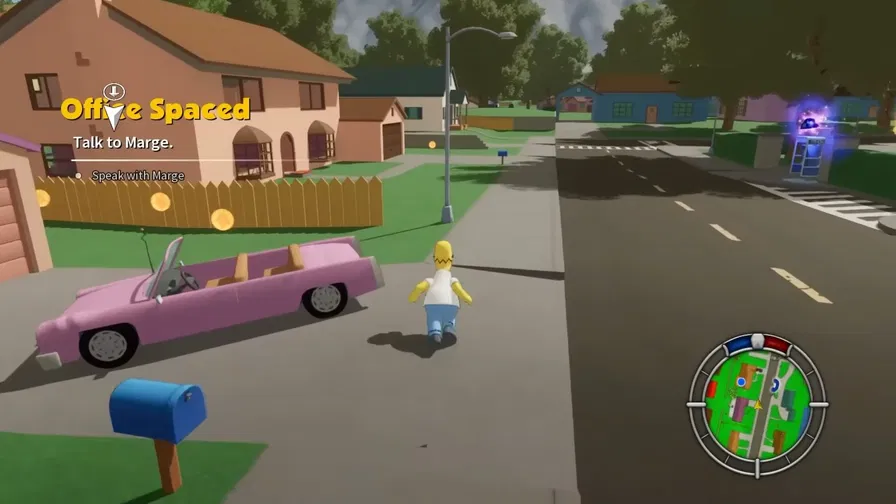The famous video game “The Simpsons: Hit & Run”, which became a cult among those players who experienced its release on PlayStation 2, it could have had up to three sequelsif it hadn’t been for an incomprehensible decision on the part of the publisher, which it was at the time Vivendi Universal Games.
Joe McGinn, lead designer of the original game, revealed this information in a comment left on a video, posted on YouTubededicated to the world records achieved by speedrunners who have dedicated themselves to the game over the years.
McGinn claims that some crazy person on the publisher’s part simply rejected the offer.
According to McGinn, Gracie Films, the Simpsons production company, had offered the publisher (Vivendi) the possibility of making three sequels to the popular game, with all the rights and voices of the characters, without having to pay for any licenses. Despite the commercial success of the first titlesomeone within the publishing house refused, to everyone’s general disbelief, this decidedly advantageous proposal.
This revelation helps explain why, despite the enormous popularity of “The Simpsons: Hit & Run,” an official sequel was never made. The game, released in 2003, it mixed elements of Grand Theft Auto with the Simpsons universeand is still much loved by fans today, being the only title, together with the platformer released during the PlayStation 3/Xbox 360 generation, of which fans constantly ask for a remake.
The designer, as well as make this peculiar statementhe defined “incredibly funny and touching” see the interest still alive in the title 20 years later. McGinn’s revelation made it even more frustrating for many players that no sequels were ever made, considering the lucrative offer the publisher rejected.
To this day, it remains a mystery why the publisher refused such a tempting offer, which would have allowed it to exploit a successful IP without licensing costs. McGinn himself admitted that the developers never discovered the identity of the person he took this seemingly illogical decision from a purely commercial point of view.
Source: www.tomshw.it


